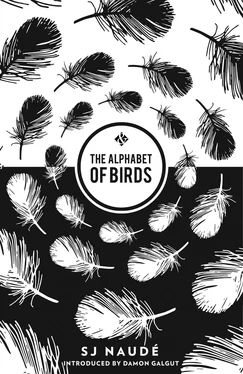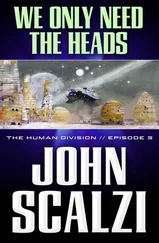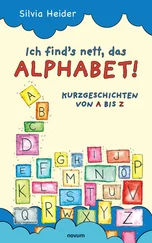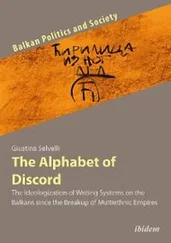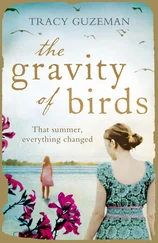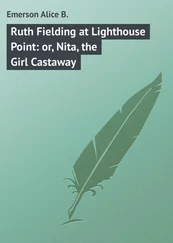She sits down slowly on Mrs Z’s dining-room chair. ‘I’m just a looter myself,’ she repeats. ‘I’m also only squatting here. You and I, we’re in the same boat.’
She clears her throat, shifts in the chair.
‘I know I understand little of your thoughts, your degree of need and all that, but let’s experiment. Let’s each share something. As an icebreaker,’ she says, ‘let me tell you about my mother. Of her neat flower beds, how she used to sing in the garden. How her voice disappeared in the high Free State sky.’
The pan of tea water gives off slow steam. There is silence. She continues.
‘Let’s give friendship a try,’ she says. ‘As my friend you would probably want to ask (wouldn’t you?): “what else? Is that all that’s left of your mother, Ondien? The little flowers, a few notes in the afternoon?”’
She pours the tea, the heat against her face. In the skull music there appears, amidst atonal chanting, a graceful shred of melody which vanishes before it can be caught. Chords, just two or three, sweet and high, like snowy peaks above clouds. The suggestion, over a bass line, of glass bells. The melody slips, major into minor, shadows drift over thoughts. Thus one remembers, she thinks. And thus one forgets, is forgotten. Even by your own music.
She continues in the silence. She can feel the power draining from her muscles. ‘Another question you would want to ask is: “can one grieve alone? Grief,” you would frown and shake your head, “as private language, Ondien? Here in your little room, in a barren garden, hands flitting over a stunted organ?”’
She breathes deeply. His hands keep moving, his eyes are quick, his scalp is breaking out in shiny sweat.
‘And,’ she coughs, her voice sounding thin and flat, ‘you would have asked: “could it yield anything, Ondien, your search for someone in a cloud of sound, in the chambers of bone behind the ear?” “Probably not,” I’d have to answer. And yet,’ she says, ‘come and listen, come and stand here next to the organ.’ She swallows, keeping an eye on his movements, avoiding sudden movements herself. ‘As if I’m the accompanist and you the soloist. Let me play.’ She swallows again, steadies her hands. ‘I’ll play the bit near the end of the final movement where the locusts, the underworld’s devouring undertakers, gather to land. Listen closely: there is an instant, just the briefest of moments, when the swarm takes on the shape of the deceased …’
Between the mattress and table he blocks her way, takes her hard by the upper arm.
‘You’ve talked enough,’ he says, ‘talking is over.’
In rasic theatre, the partakers empathize with the experience of the performers playing. This empathy with the performer rather than with the plot is what permits Indian theatre to ‘wander’, to explore detours and hidden pathways, unexpected turns in the performance. […] The partakers’ interest is not tied to the story but to the enactment of the story; the partakers do not want to ‘see what happens next’ but to ‘experience how the performer performs whatever is happening’.
Richard Schechner,
Performance Theory
He dreams he is doing ballet with a Japanese man at the Voortrekker monument. The man is half sitting, half standing against a low granite wall. He walks to the man, turns around and presses his back against his chest. The man puts his arms around him and they move across the expansive paving. Besides firmness, there is empathy in the man’s grip, in the manner in which he is steering them. It is simultaneously without doubt and without insistence. Gently the Japanese man is initiating him, as if wanting to say: everything is ok, we can do it. (He utters no word in the dream, the Japanese man.) The trust grows swiftly and, as they become more synchronised, all his restlessness and grief dissolve. It is as if there is a transfer of skill to him directly from the man’s body. And it consoles him, this flow. Like a blood transfusion: a biological consolation. He knows — they know together now — the exact direction they should go, what the next movement will be. His chest heats up, becomes warm like a bird’s nest. Around them the hills are barren and beautiful. The highways astonish him with their sweeping width. He is light and gracious.
When he wakes up in the early morning hours with a lingering feeling of fondness for his nurturing dance partner, he walks out onto the balcony. In front of him lie the amphitheatre of the city and Table Bay. One loose cloudlet is hanging above the city, motionless. He stretches his hand out towards it. It looks so close. Where did it come from, all that grief that had to be danced away in the dream?
He leans forward against the balustrade. It must be the conversation of the previous evening that gave the dream its shape — or movement. Sam called from the north and excitedly explained how he was using Butoh as inspiration for his latest choreography. Sam is a young man, a contemporary dance student.
‘Butoh?’ he enquired.
‘Difficult to explain,’ Sam said. ‘It’s a Japanese style — I’ll have to show you. It works for my body, that’s all I know. I feel it just like that.’ He could hear Sam snapping his fingers.
Sam’s forte is dance — movement — rather than description.
Like all his previous encounters of this kind — perhaps it goes for most encounters that cause unexpected joy to burgeon between two people — his meeting with Sam was unlikely. After years of absence, he had been trapped for some time in Pretoria, the despised city of his youth, occupied with gruelling family matters.
Yes, trapped: in this place that has become so dusty and messy, the seat of successive governments, all ultimately of the same hue (or at least flavour). He had shaken the dust of this place from his feet a long time ago, he thought. He feels tricked. There is hardly any diversion here. No cultural activity to speak of, little to lift him from his torpor, from being extinguished.
As a last resort, he attends a student drama festival at Pretoria’s university. Without much expectation or hope. And his lack of hope was not unfounded. The performances are incoherent, sometimes embarrassing. Musicals, improvised dramas with adolescent themes. No, wait, he is too merciless in his judgement; it is, after all, the work of kids, loose-limbed kids still finding their form. And what could they know of the world beyond the boundaries of this dull city?
Even so, there is one performance that makes an impression. Dance theatre, physical theatre. The stage represents a claustrophobic flat in Cape Town in the 1980s. A soldier has returned from the border war to his wife and child after being seriously wounded. He has been irreparably traumatised and numbed. He is like a creature in a cage. The child’s escape into a fantasy world provokes his ire. At some point, in order to demonstrate the principle of unreality, he stabs the child’s imaginary friend to death with a knife. The actor-dancer’s sequences of movements, in between his deadly silences, are a tour de force. He has a gun in his hand throughout the movements. He is shirtless, his muscles like rock under skin the colour of strong tea. Long black hair tied back tightly. Loose-fitting linen trousers. He is engaged in a bitter battle with the floor and walls. He strains against gravity; then, suddenly the earth lets go and he tumbles weightlessly upwards, towards the ceiling.
What could these students understand of the era in which the piece is set? he thinks. Nevertheless, it is quite engaging. A slightly watered-down version of what Pina Bausch might have done with such material. The kind of movement piece that does not create abstract shapes, but is built around the temperament of individual dancers. The risk of injury, of damage, provides the main source of energy. Bones just short of shattering point, cartilage and sinews under high pressure. Dancers throwing their bodies frenziedly against the floor, the escaping breaths sounding like something between a sigh and a hiccup. Sweat bespattering the front row. The audience shrinking away, tingling, imagining their own bodies into the dancers’ …
Читать дальше
